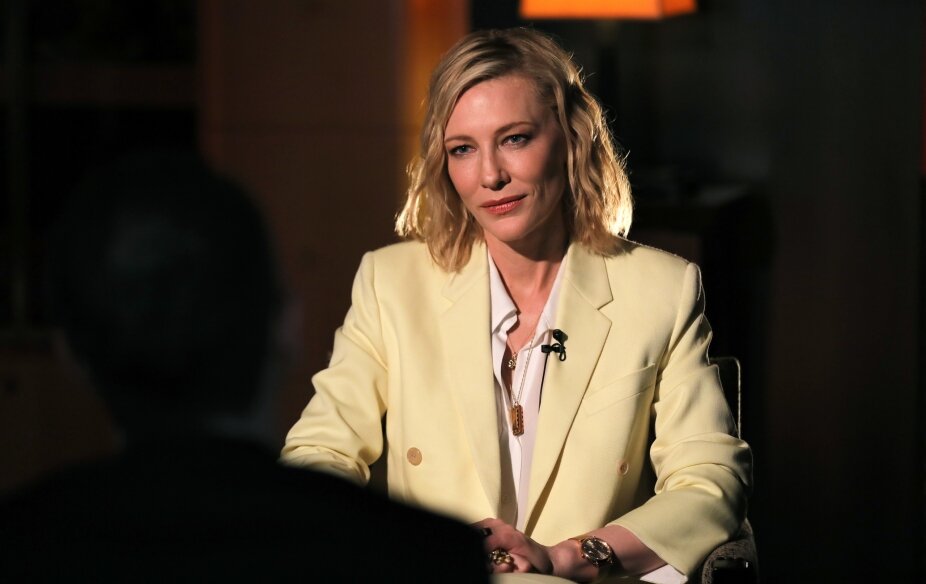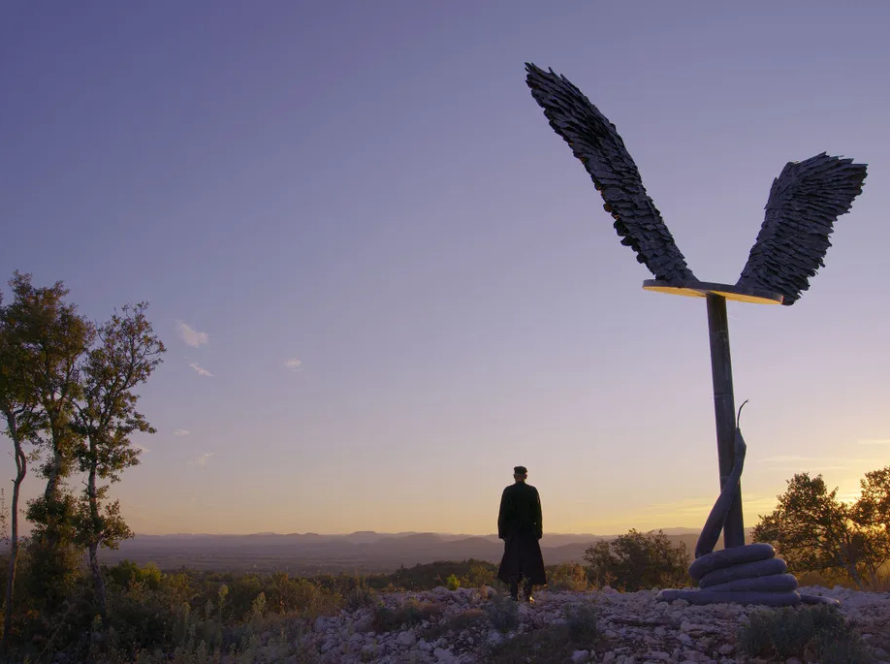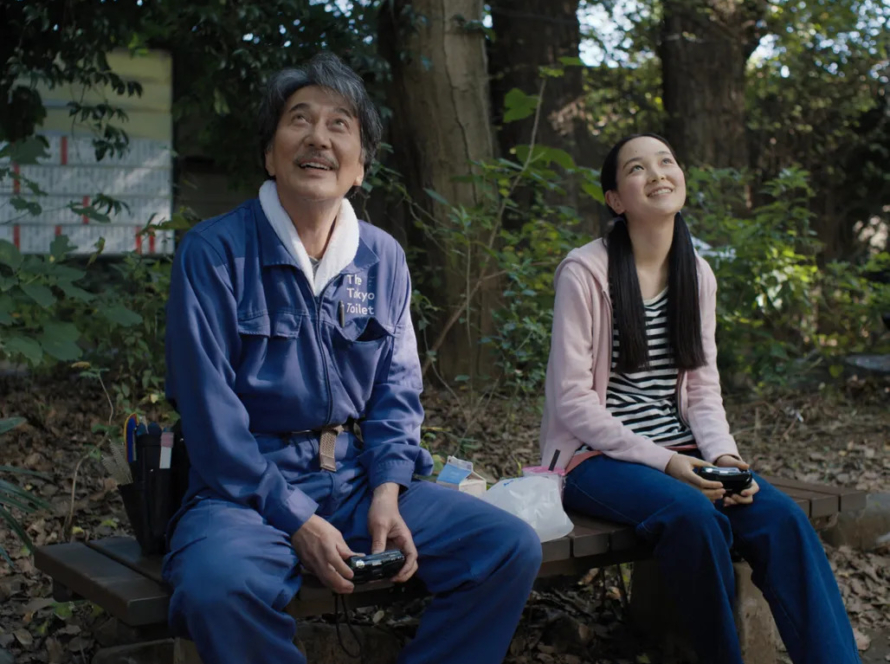Cate Blanchett – Présidente du Jury des Longs Métrages © François Silvestre De Sacy /FDCInterview with Cate Blanchett, president of the Feature Film Jury
Two-time Oscar winner Cate Blanchett presided over the Feature Film Jury at this 71st edition of the Festival de Cannes. An artist prodigy with incredible charisma, as well as a model of elegance and intelligence, she has evolved on screen in a variety of roles. The Australian appeared with Harrison Ford at the closing of the Festival de Cannes in 2008 for Indiana Jones and the Kingdom of the Crystal Skull, accompanied Alejandro Iñárritu on the red carpet for Babel in 2006, and Todd Haynes in 2015 for Carol. Interview.
How important is your new role for you: President of the Feature Film Jury? What kind of president are you?
It has been and continues to be a very profound privilege. Not only to have the opportunity to see such a diverse array of films from such interesting and different perspectives. But to be in dialogue with the members of the Jury. None of them I knew personally, only Léa a little bit. They are open hearted and engaged, they are taking their role seriously, understanding the importance of the platform for filmmakers, even if we have a lot of laughs! It has been very eye opening. It invites you into a certain heartbeat, into a certain rhythm.
Léa Seydoux said, as a member of the Jury, that she felt you were taking care of them…
Oh really? That’s nice! Bob Dylan said something really interesting years and years ago: “You don’t take yourself seriously but you take the work seriously”. I said very early on to them: “This is not a murder trial, we’re a film festival jury. We have to be there with respect, joie de vivre and curiosity”. We’re really trying to respect every single filmmaker, their culture, their gender or their age, and just to see what is in front of us. It’s like a great rehearsal room, there is an attempt to understand what people are saying or trying to say!
Three days before the award ceremony, are you starting to make choices?
Khadja said very early on: “Remember we’re not making a judgement but making a choice”, and we are now getting to the painful part where we have to compare films of such diverse ambition. And that’s the thing with art, we are in an impossible situation. It is starting to get a little painful to have to whittle those things down, because no one is trying to dominate, which I think often happens in a group of people. It feels more like we are trying to find a group mind. We will try to take a decision that everyone feels comfortable with. That said, the vast majority of the films has really engaged everybody. There is a lot of commonality this year between the films, so that’s been very interesting to watch. We’ve talked generally but now it is time to talk specifically.
There is one thing I have said to everybody: “Some films take a while to develop in you and take a while for one to deeply respond to them. Some films you respond to passionately, immediately, but then they burn brightly and they fade”. That doesn’t mean they’re not of merit but we try to find those films that stay warm and alive inside us.
The interesting thing about the codes and the regulation of the festival, which I think a lot of people are unaware about, is that if you win the Palme d’or, you can’t win anything else. Or the Grand Prix. So if you’ve really loved a performance, you really think the director is extraordinary, you have to try things around. I think the reason why the regulations are like that is so that not one film scoops everything. They try to acknowledge the fact that we’re talking about cinema, we’re not talking about soccer! So it’s just to say that every single film has powerful moments and merits to be In Competition, and in a way they already won an extraordinary prize by being in the Official Selection. Now it’s just about having to make a choice.
This is not a murder trial, we’re a film festival jury. We have to be there with respect, joie de vivre and curiosity
What about your first time in Cannes? How did you feel when you walked your first red carpet to see The Ice Storm from Ang Lee in 1997? What about the special atmosphere in the Grand Théâtre Lumière?
The first time I came I couldn’t believe I was here. I had a friend’s film in the marketplace which was looking for distribution.
I just walked up the steps of the Palais! The screen is extraordinary, I have never seen a film on a screen like it, it is an extraordinary cinema. As a filmmaker, I imagine that having your film seen in that way, with such an engaged audience, it must be incredible. It is very magical, I couldn’t believe I was there. I was saying to Pierre Lescure that Cannes really understands the sense of event, creating an atmosphere that is very special around each film, there is a celebration each time the film is played which I think is wonderful.
What are your best memories of the Festival?
Every festival I’ve been to has had a different atmosphere. But far away this is the most extraordinary experience I have had, because you’re getting to watch the films, to be inside the festival. Often when you come to present a film there is so much anxiety and you’re in a little bubble because you’re concerned with how the film plays, how everyone else on the film is. Even though there is a lot of commitment as Jury president, it is such a pleasure to slow down for a minute and simply watch other people’s work. You get to see films from such different cultures, often dealing with similar subject matters, so you get a sense of global concerns. From an anthropological perspective it’s really fascinating. Which film transcends the culture more than others, our job is to sort of mark a point of difference, but as an artist the take out for me is the commonality between a lot of the films, the point of connection between the films, thematically, visually, I find that very fascinating. As a person working in cinema it is very inspiring to see great performances, often invisible feats of direction, and you also see filmmakers taking incredible risks. I applaud the risk taken.
You are known to work very hard on your projects, which part cost you the most, took up most of your time?
I think that, at the end of the day, no audience member wants to know how hard I’m working. I feel like this happens a lot in America, where people would talk about how hard they have worked and how much it has cost them. But I am only interested in what’s on the screen. I don’t want to hear too much about this. Sometimes it does costs a bit more though. I remember when I played Nina in Chekhov’s The Seagull it was so profound, and I was so profoundly happy, I had just fallen in love with my husband. I thought: “how I am gonna perform the last scene in The Seagull, this woman is so broken and so disillusioned and so existentially unhappy and in such a tragic situation?”.
And overall, having four children, I have to be very, very economical about the way I work. So the best thing that has happened to me as an artist is to have children. Because they don’t care about how long you’ve spent working, even if you’re in the middle of doing the most difficult, complicated, intellectual, moral and emotional scene, you have to check it at the door, leave your life and then go back and play.






